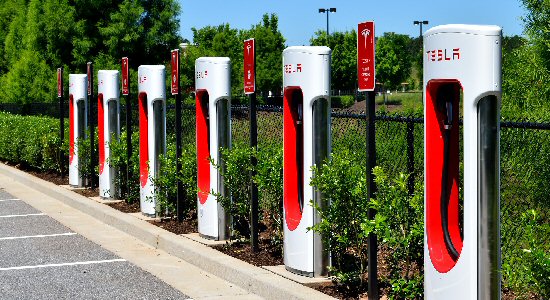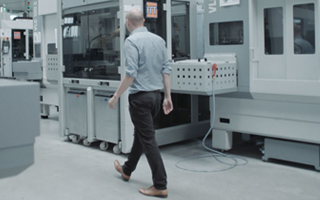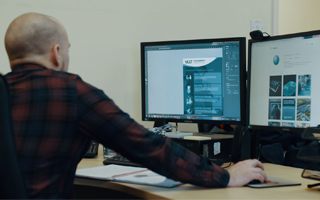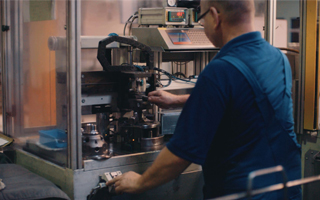The Future of Roads - Plastic
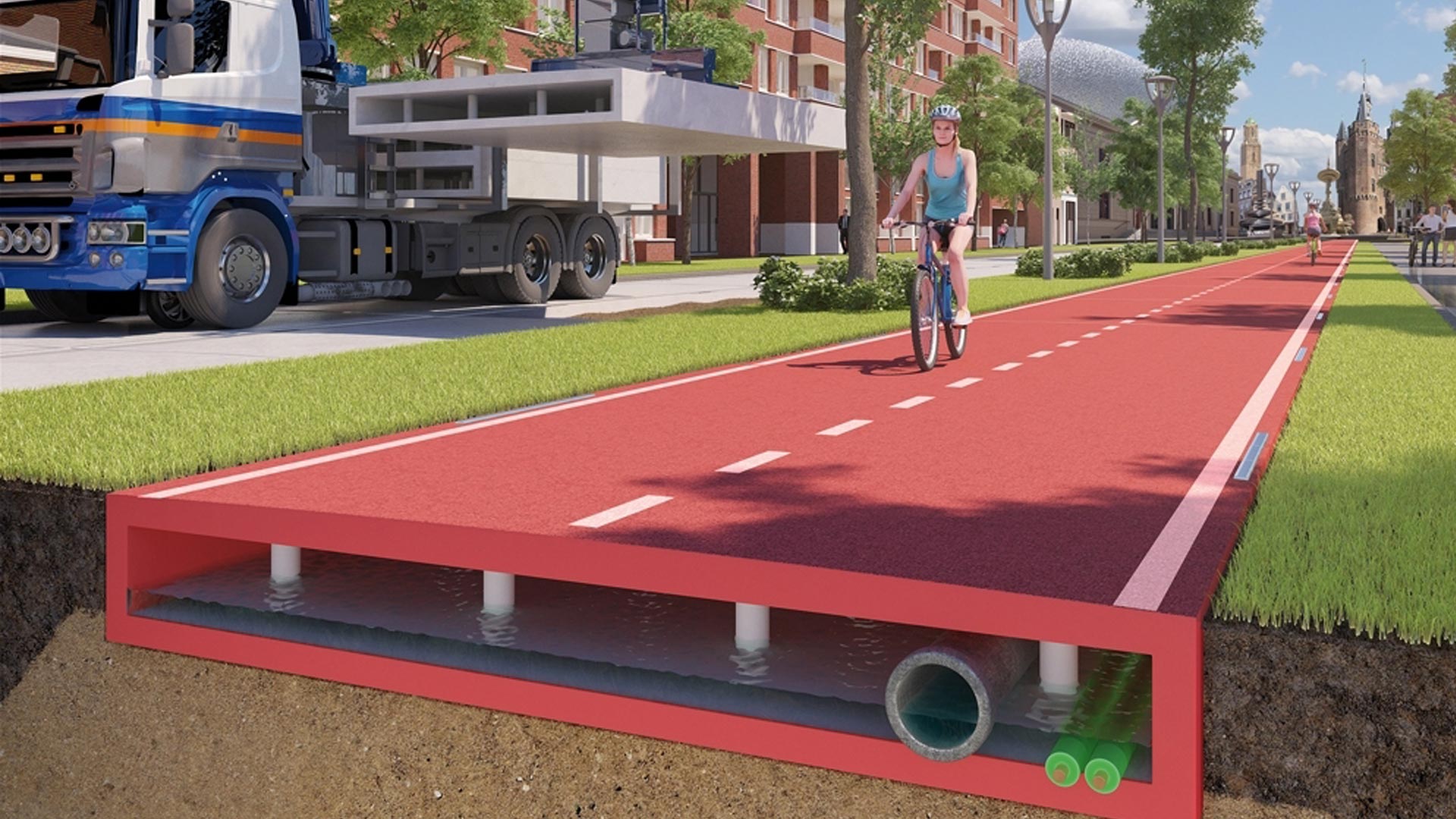
SEE A NEED, FILL A NEED
Appearing as if from nowhere and spreading across the roads like black pits of alloy shattering despair - winter brings about the growth of the dreaded pothole more than at any other time of year.
In their wake arises the relentless sea of orange plastic and amber light, to further torment motorists into traffic jam induced rages of impotence. It doesn’t have to be this way, salvation is close to hand.
A number of firms have been working on solving the multitude of problems involved with improving and maintaining highway infrastructure at a point when road networks have never been busier and have arrived at the solution – plastic.
At first it may seem counterproductive to settle on using a material already responsible for untold damage to the planets ecosystems, and a derivative of a finite resource on the wane. However the opposite is true as it instead absorbs some of the world’s approximated 6.3 billion tonnes of waste plastic (roughly as heavy as 20,000 Empire State Buildings) instead of adding to it, making it eco-friendly.
TWO WAYS TO PLAY
There are two approaches to using plastic in road building and repairing. The first is a relatively simple swap of the materials used when patching up pot holes. Waste plastic replaces a significant portion of bitumen used in the repair, both reducing resource demand and recycling waste plastic in one action.
Tests of this process have already been carried out in various parts of the UK and the results have been positive – saving money on both the materials used and the reduction in the frequency of repairs required as the patch is more durable.
The second approach is where the real revolution is happening - entire roads built from recycled waste plastic. It has enormous potential and after reading the benefits of the process you’ll wonder why it hasn’t happened already.
Dutch firm KWS are a market leader in road building, and they’ve teamed up with plastic experts at Wavin and Total to work on a collaborative effort to truly change the way we manage our highway infrastructures - and help save the planet at the same time.
Prototyping is nearing completion with tests expected next year, initially as a cycle path, but with the intent to apply it to increasingly higher grade applications over time – residential roads, highways, even airports. If the prototype works there’s no limit to how far it could go.
TOO GOOD TO BE TRUE
Their design works on a pre-fabricated approach, assembled section by section, lane by lane. They predict road build times will be reduced by an astounding 70% by the vastly simplified construction process. Being four times lighter they don’t require a true foundation to support the weight, and are easily transportable in comparison – needing 85% less transportation resources than normal road construction materials do.
The roads are three times more durable than conventional materials and stay much smoother throughout their lifetime, exerting less wear and damage to tyres and vehicles. The material is almost impervious to environmental damage and needs little to no maintenance, further significantly reducing the need for road works.
A key benefit is they will absorb massive amounts of waste plastic that would otherwise end up in landfill, inefficiently incinerated into carbon emissions, or continue to accumulate in our oceans to catastrophic effect. The road itself stays fully recyclable too, and can be reused again once at the end of their life.
Another aspect to its design is the hollow space within the road section. It is able to function as a temporary drain to handle a sudden deluge of water within it, and then allow it to drain away into the ground afterwards. More impressively, utilities can be routed through it; pipes and cables can easily be laid inside without any need to dig up the road surface – reducing road works even more.
FROM PROBLEM TO OPPORTUNITY
It’s easy to get ahead of ourselves when talking about something that can so drastically change things for the better, we have to remember that an extensive amount of experimentation and testing is still needed and a significant number of challenges will need to be overcome.
Some of the more notable issues include the possibility of noise being carried through the structure and it acting like a sound box, or causing vibrations. KWS can already make the road surface itself much quieter than an asphalt one, but as yet have not been able to measure the effects of the sound generated inside it on any scale.
Incredibly they are trying to turn this problem into an opportunity by considering using any vibrations caused as a possible means of energy generation - while still working to assess the noise implications and counter it. Combining this with advances in low powered lighting and circuitry could result in street lighting powered by the vehicles themselves as they travel.
The flexibility of plastic is also an issue as it must be able to withstand very heavy loads. You can simply try to make the structure thicker and stronger but it reaches a point where it stops being viable. From a cost and environmental stand point it would of course be preferable to keep it as one material, but in the event it isn’t strong enough there are a number of contingencies, such as including crushed stone to stiffen it.
FURTHER POTENTIAL
KWS are looking into including much of the roadway paraphernalia into the prefabrication process – road markings, barriers etc. It all helps to streamline and expedite the construction process.
They haven’t yet made it clear how road markings would be integrated into the system, whether it would continue as the standard painted on method, or whether they would be made from plastic themselves and inlaid into the surface – so they would never fade.
A point of major interest is the modifiable nature of the design and material when it comes to incorporating technologies associated with Electric Vehicles. The possibility of embedding magnets into roads to charge the batteries of vehicles as they pass over has been raised before. Plastic road sections make it far easier to do this, whether through modifying the design itself or by simply cutting holes through the surface and mounting the technology from underneath retrospectively.
Another interesting possibility is the idea that road layouts wouldn’t be permanent constructions anymore. It currently takes a massive amount of time, money and material to construct a road, and once built cannot be moved without being destroyed.
Plastic roads could potentially be uplifted and re-laid anywhere. If a road layout isn’t working it can be redone to try and improve it quickly and easily. If a road no longer serves the function it was intended to, it can be removed and reused elsewhere.
ALMOST PERFECT
When constructing anything out of plastic and assessing the environmental impact, it must also consider the relatively newly discovered problem of microplastic pollution. As plastic is worn down, the small particles created cause harm as they are ingested by small creatures and contaminate the food chain – it’s a serious problem.
It could be argued that the benefits the material provides in reducing the micro-particles created through tyre wear and adsorbing so much waste plastic are that beneficial it is easily worth the trade-off. But the impact must still be closely examined to ensure we are not just displacing problems instead of solving them – or even creating new problems entirely.
Plastic roads have real potential to make a massive positive change felt by everyone. Not just road users who would face less delays to their journeys and safer travel on better surfaces, but also everyone who would benefit from waste plastic no longer littering the planet and instead being used for something else. It’s a brilliant example of turning a problem into an opportunity.


